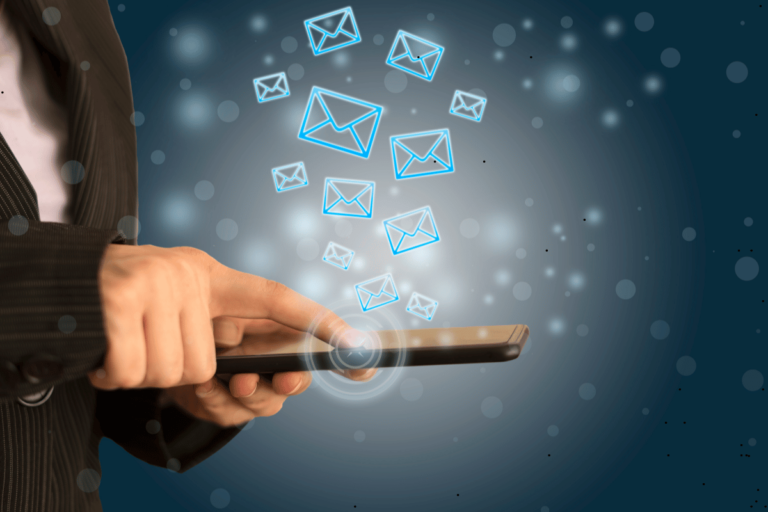Data Security and Privacy for Donor Information.
Is your nonprofit protecting your donors’ sensitive information well? In today’s digital world, data breaches and cyberattacks are common. Keeping donor records safe is now a top priority for all organizations.
Protecting donor data is more than following laws like GDPR and CCPA. It’s key to earning and keeping your supporters’ trust. When donors give you their personal and financial info, they trust you to keep it safe and private.
In 2022, data breaches in the U.S. hit a record high. Over 2.6 billion personal records were stolen by cybercriminals. Sadly, 88% of these breaches were caused by mistakes from inside the organization, like falling for phishing scams.
As more people give online, the need to protect donor info grows. With online donations up 25% each year for medium-sized nonprofits, keeping data safe is more important than ever. Without strong cybersecurity, you risk your donors’ privacy and your organization’s reputation and finances.
Key Takeaways:
- Protecting donor data is essential for building trust and ensuring compliance with regulations
- Cyberattacks and data breaches are on the rise, with nonprofits increasingly being targeted
- Internal personnel mistakes account for a significant portion of data breaches
- Online giving is growing rapidly, making website security and secure payment processing crucial
- Inadequate data privacy policies can lead to legal action and loss of 501(c)(3) status
The Importance of Protecting Donor Data
In today’s digital world, keeping donor data safe is key for nonprofits. With 70% of people worried about their data, nonprofits must protect their donors’ info. If they don’t, 63% of donors might stop giving.
Yet, 50% of nonprofits lack a data privacy policy, making them vulnerable. And, 30% have faced a data breach in the last year. This shows nonprofits need to focus on data protection and have clear privacy policies.
Building Trust with Donors
Trust is vital for nonprofits. Almost 70% of donors need to trust a charity before giving. And 80% want clear data privacy policies. Strong data security and transparency can build trust.
Donors who know how their data is used are more likely to support an organization. This leads to stronger relationships and more donations.
Compliance with Data Protection Regulations
Nonprofits must follow global data protection laws like GDPR and CCPA. They also need to meet industry standards like PCI DSS and SOC II.
Following data privacy best practices helps nonprofits stay compliant and avoid fines. Regular audits are key to improving data privacy. By keeping up with regulations, nonprofits show they care about donor data and keep their supporters’ trust.
Assessing Your Nonprofit’s Cybersecurity Risk
Nonprofits deal with sensitive donor info, making data security key. Yet, many nonprofits might not know they’re at risk. A detailed cybersecurity risk assessment is vital to spot weaknesses in their policies and procedures.
Some common risks include not having clear cybersecurity policies, no multi-factor authentication, and not training staff on data handling. A survey by the Nonprofit Risk Management Center shows that 60% of small to medium-sized nonprofits lack a cybersecurity plan. Also, about 60% don’t train staff and volunteers on data protection.
A data breach can cost a lot, with an average price tag of $4.24 million, IBM’s 2021 report says. The Ponemon Institute also found that 90% of organizations face reputational damage after a breach.
Nonprofits must also deal with complex data protection laws. Here are some key stats:
| Statistic | Value |
|---|---|
| States requiring notification of PII disclosure in security breaches | 47 |
| States with laws mandating specific PII disposal methods | 31 |
| Average cost of data breach notification per individual affected | $100 – $200 |
| Average time to identify and contain a data breach | 280 days |
To fight these risks, nonprofits should use secure software, have strong passwords, and keep systems updated. They should also teach staff about data security. By tackling cybersecurity risks head-on, nonprofits can safeguard donor info and keep their supporters’ trust.
Best Practices for Securing Donor Information
Keeping donor information safe is key for your nonprofit’s success. By using top data security practices, you show you care about privacy. Here are some ways to make your nonprofit’s online space safer:
Invest in Secure Software Solutions
Nonprofits need to choose secure software. Look for tools that encrypt data and follow strict security standards. This keeps donor info safe from hackers. Sadly, 60% of small nonprofits faced a data breach last year, showing the need for strong software.
Implement Strong Password Protocols
Good passwords are vital for protecting donor data. Tell your team to use strong, unique passwords. Avoid easy-to-guess words and personal info. Strong passwords can cut data breach risks by 80%. Also, think about adding two-factor authentication to stop 99.9% of cyber-attacks.
Regularly Update Software and Systems
It’s important to keep your software and systems current. Updates often fix bugs and add security features. This can lower cyber-attack risks by 90%. Make a plan to update your nonprofit’s tech regularly to stay safe.
By following these tips, your nonprofit can better protect donor info. Remember, 70% of donors worry about their info’s safety. Showing you care about security can make donors more likely to give by 30%.
Ensuring Website Security for Online Donations
In today’s digital world, keeping your website safe is key for nonprofits that get donations online. Cyberattacks are common, and donor info is at risk. It’s vital to protect your site and keep donors’ trust. Strong security measures make your site a safe place for donations.
Obtaining an SSL Certificate
Getting an SSL certificate is a big step in securing your website. This tech keeps data between your site and visitors safe. It also shows donors you care about their privacy and security.
- Encrypting sensitive data to prevent unauthorized access
- Verifying the authenticity of your website, reducing the risk of phishing attacks
- Improving your search engine rankings, as search engines prioritize secure websites
- Enhancing donor trust and confidence in your online donation process
Utilizing Secure Payment Gateways
Secure payment gateways are also key for safe online donations. They protect financial info by encrypting it. Working with trusted gateways gives donors a smooth, secure way to give.
When picking a payment gateway, look at these things:
| Factor | Importance |
|---|---|
| PCI DSS Compliance | Ensures the payment gateway meets top security standards for credit card payments |
| Encryption and Tokenization | Keeps financial data safe by making it unreadable and replacing it with a token |
| Fraud Detection and Prevention | Uses smart systems to spot and stop fake transactions |
| Integration with Your Website | Makes giving easy and smooth, helping more people donate |
By focusing on website security, your nonprofit can offer a safe space for donations. SSL certificates and secure payment gateways are crucial. They protect donors’ info and build trust, leading to more support for your cause.
Managing User Access and Permissions
Protecting donor data is key, and managing user access is a big part of it. It’s important to give staff the right info but also keep data safe. Nonprofits can do this by using strong user access management and data controls.
One good way to manage access is to match it with job roles. For example, a volunteer coordinator might see donor contact info but not financial details. This way, nonprofits can lower the chance of data breaches.
Having clear policies for changing user access is also vital. These policies should explain how to give, change, or take away access. It’s important to update access quickly when staff roles change. This keeps the nonprofit’s data safe.
| User Role | Access Level | Permissions |
|---|---|---|
| Executive Director | Full Access | View, Edit, Delete |
| Development Manager | Partial Access | View, Edit |
| Volunteer Coordinator | Limited Access | View |
Choosing the right donor management software is crucial. Look for features like DonorPerfect’s unlimited user IDs and security options. DonorPerfect also lets you set strong password rules. This helps keep data safe.
By using good user access management and data controls, nonprofits can keep donor info safe. They can still let staff do their jobs. It’s all about using secure software, having clear policies, and checking user permissions often.
Implementing Additional Security Measures
To keep donor info safe, nonprofits need more than just basic security. They should use data encryption, tokenization, VPNs, and firewalls. This combo helps lower the chance of data breaches and keeps donors’ trust.
Data Encryption and Tokenization
Data encryption and tokenization are key for protecting donor info. Encryption turns data into a code that only a key can unlock. Tokenization swaps sensitive data with a random token for safe use.
Using tokenization and encryption greatly lowers the risk of data leaks during payments. For example, iATS Payments follows strict security rules to keep donor data safe during transactions.
Virtual Private Networks (VPNs)
VPNs add extra security by making a safe, encrypted link between a device and the network. This is crucial for remote workers or those accessing data outside the office. VPNs keep data safe from public networks and threats.
Firewalls and Network Security
Firewalls block threats by controlling network traffic. They keep sensitive donor data safe by stopping unauthorized access. Firewalls also fight off malware and hacking.
| Security Measure | Purpose | Implementation |
|---|---|---|
| Data Encryption | Protects sensitive data by converting it into a coded format | Apply encryption to data at rest and in transit |
| Tokenization | Replaces sensitive data with a randomized token for secure processing | Utilize tokenization for payment processing and data storage |
| VPN Security | Creates a secure, encrypted connection for remote access | Require staff to use VPNs when accessing sensitive data remotely |
| Firewall Protection | Monitors network traffic and blocks potential threats | Configure firewalls with preset security rules and regularly update them |
By adding these security steps, nonprofits can really boost their data safety. It’s important to keep these measures up to date to fight off new cyber threats. This way, nonprofits can keep their donors’ trust.
Educating Staff on Data Security and Privacy for Donor Information
Good cybersecurity starts with staff who know how to protect donor data. With more people working from home, the risk of data leaks grows. This is why nonprofits need to focus on teaching staff about data security and privacy.
Incorporating Cybersecurity Training
Nonprofits should make cybersecurity training a key part of their work. This includes training new staff, keeping records up to date, and ongoing learning. Training helps prevent mistakes that can lead to security breaches.
Staff need to know about the different types of donor data nonprofits collect. This includes names, where they live, and what they do. They should also learn about security steps like strong passwords and encryption.
Training should cover important security steps, such as:
- Using strong, unique passwords for each account
- Enabling multi-factor authentication (MFA)
- Securely storing and disposing of hard copy personal information
- Utilizing a VPN when accessing the organization’s intranet remotely
- Ensuring all devices are encrypted, password-protected, and equipped with firewalls and anti-virus software
Developing Clear Data Handling Policies
Nonprofits also need clear data handling policies. These policies should tell staff how to handle donor data. They should be updated regularly to keep up with laws like HIPAA and GDPR.
A good data handling policy should include:
- Requiring employees to sign a Confidentiality Agreement
- Establishing specific timelines for disposing of personal information once it is no longer needed
- Maintaining logs of remote access activity and periodically reviewing them
- Promptly disabling accounts of former employees to prevent unauthorized access
By focusing on staff education and clear policies, nonprofits can protect donor data. This helps keep trust and avoids big fines. Investing in cybersecurity training and policy updates is key in today’s digital world.
Navigating Global Data Protection Laws
As a nonprofit working globally, you must understand complex data protection laws. With 80% of adults worldwide worried about online privacy, following these laws is key. It’s not just about following rules; it’s about earning your donors’ trust.
The GDPR in the European Union and the CCPA in California are laws nonprofits must follow. The GDPR gives EU citizens more control over their data. They can ask for their data, correct it, or have it deleted. The CCPA gives California residents similar rights, like knowing what data is collected and asking for it to be deleted.
Understanding Regional Regulations
Nonprofits also need to follow other laws, like the CAN-SPAM Act in the US. This law requires clear opt-out options in emails and accurate sender info. Keeping accurate donor records is also crucial to protect their information and keep tax-exempt status.
California recently passed Assembly Bill 488, which affects online fundraising. This change shows how important it is to keep up with new laws.
Ensuring Compliance with Industry Standards
Nonprofits must also meet industry standards like PCI DSS for payment security and SOC II for data management. PCI DSS is vital for online donation processing, showing that payment info is safe. SOC II ensures data is protected with effective controls.
To stay compliant, nonprofits should regularly check their data management. This includes reviewing access controls, encrypting data, and documenting procedures. Data flow diagrams can help spot security weaknesses.
By following these laws and standards, nonprofits can gain donors’ trust. They avoid big fines and keep sensitive data safe in our digital world.
Conclusion
Keeping donor data safe is key for nonprofits. It builds trust and support from donors. By using secure software, strong passwords, and keeping systems updated, nonprofits can lower data breach risks.
Getting an SSL certificate and using secure payment gateways are also vital. This protects online donations.
Nonprofits face many data protection laws, like GDPR and CCPA. These laws help avoid big fines and keep them in line. The AFP and APRA Codes of Ethics guide nonprofits in respecting donor privacy and keeping data safe.
Creating clear data handling policies and training staff is important. This helps keep donor trust.
A good donor privacy policy should be easy to find. It should explain what data is collected, how it’s used, and offer ways for donors to opt out. By focusing on privacy and working with data experts, nonprofits can build stronger relationships with donors.
In the end, making data security and privacy a top priority is crucial. It’s essential for the long-term success and growth of nonprofit organizations.
Source Links
- Securing donor data: why nonprofit cybersecurity is critical in digital fundraising – https://fundraiseup.com/blog/nonprofit-cybersecurity/
- To Protect Your Nonprofit’s Growth, Protect Your Donors’ Privacy – https://www.forbes.com/councils/forbesnonprofitcouncil/2021/11/02/to-protect-your-nonprofits-growth-protect-your-donors-privacy/
- Donor Privacy: Protecting Your Revenue and Reputation Online – https://www.onecause.com/blog/donor-privacy/
- Earning trust: the imperative of data privacy for nonprofits – https://www.councilofnonprofits.org/articles/earning-trust-imperative-data-privacy-nonprofits
- The Importance of Data Privacy for Nonprofits – https://grantstation.com/gs-insights/The-Importance-of-Data-Privacy-for-Nonprofits-A-Guide
- Cybersecurity for Nonprofits – https://www.councilofnonprofits.org/running-nonprofit/administration-and-financial-management/cybersecurity-nonprofits
- Data Privacy and Cyber Liability: What You Don’t Know Puts Your Mission at Risk – https://nonprofitrisk.org/resources/data-privacy-and-cyber-liability-what-you-dont-know-puts-your-mission-at-risk/
- How Your Nonprofit Organization Can Protect Donor and Client Data — One Nine Design | Nonprofit Template Shop – https://www.oneninedesign.net/blog/nonprofit-data-security
- Top 4 Tips to Keep Your Donor’s Data Secure – https://www.charitycompliancesolutions.com/top-4-tips-keep-your-donors-data-secure
- 3 Ways to Protect and Secure Donor Marketing Data – https://www.truesense.com/blog/3-ways-to-protect-and-secure-donor-marketing-data
- Nonprofit Fraud Protection: Strategies for Securing Donor Data and Trust – https://www.donorperfect.com/nonprofit-technology-blog/fundraising-software/fraud-protection-strategies/
- Website Security: 5 Ways to Secure Your Online Donations – https://givewp.com/website-security-online-donations/
- Online Privacy for Nonprofits: A Guide to Better Practices – https://www.eff.org/pages/online-privacy-nonprofits
- Advancement: 5 Tips for Keeping Your Donor Data Secure – https://jenzabar.com/blog/advancement-5-tips-for-keeping-your-donor-data-secure
- Keep Your Donor’s Data Safe with These 5 Steps – https://www.donorperfect.com/nonprofit-technology-blog/nonprofit-technology/user-management/
- Nonprofit Cybersecurity: 7 Tips to Keep Donor Data Safe – Bloomerang – https://bloomerang.co/blog/nonprofit-cybersecurity/
- Pros and Cons of Donor Database User Permission Security – https://bloomerang.co/blog/pros-and-cons-of-donor-database-user-permission-security/
- 4 Donor Data Security Tips for Nonprofit Fundraisers – https://fundraisingcoach.com/2024/08/27/donor-data-security-tips/
- Protecting Your Donors: 3 Data Privacy Priorities for 2021 – https://www.elevationweb.org/blog/protecting-your-donors-3-data-privacy-priorities/
- Balancing Data Privacy with Fundraising Transparency: 3 Tips – https://blog.twbfundraising.com/data-privacy-fundraising-transparency/
- How to protect donor data when working remotely | Gravyty – https://gravyty.com/blog/how-to-protect-donor-data-when-working-remotely/
- Cybersecurity for Nonprofits: 10 Easy Tips to Protect Donor Data – Twintel – https://www.twintel.net/cybersecurity/cybersecurity-for-nonprofits-10-easy-tips-to-protect-donor-data/
- A Nonprofit’s Guide to Navigating Data Privacy Laws – Deep Sync – https://deepsync.com/nonprofit-data-privacy/
- Nonprofit CRMs: How to Navigate Data Privacy and Compliance – https://cogencyglobal.com/blog/nonprofit-crms-how-to-navigate-data-privacy-and-compliance/
- Who Owns Your Data? Data Privacy in Nonprofit Fundraising – https://www.dojiggy.com/blog/who-owns-your-data-data-privacy-in-nonprofit-fundraising/
- Donor Privacy Policy: Every Nonprofit Should Have One | For Purpose Law Group (FPLG) – https://www.fplglaw.com/insights/donor-privacy-policy/
- The Unique Challenges Charities and Nonprofits Face in Governing Donor Data and Complying with Privacy Regulations | Data Sentinel – https://www.data-sentinel.com/resources/the-unique-challenges-charities-and-nonprofits-face-in-governing-donor-data-and-complying-with-privacy-regulations







